the city of winter park
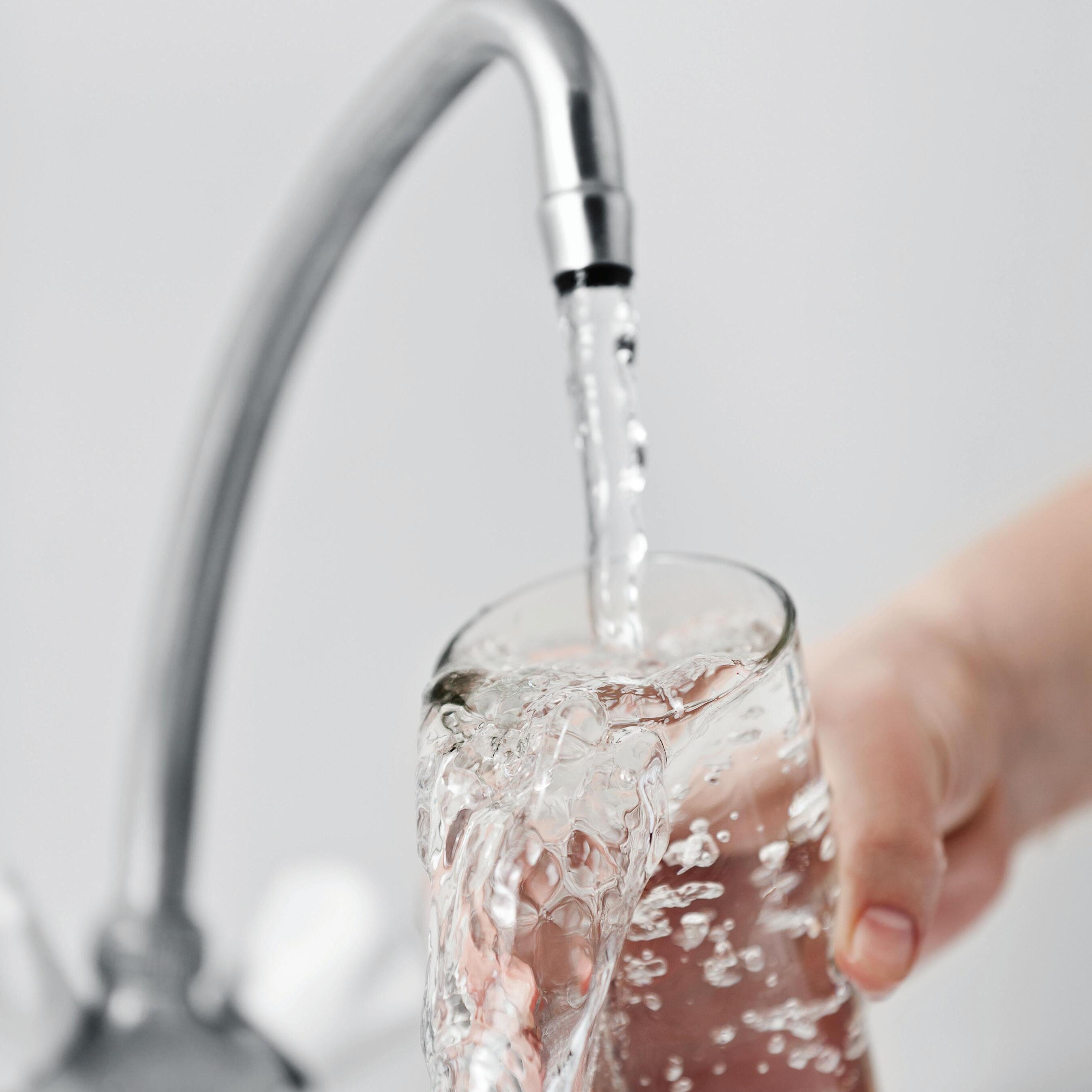


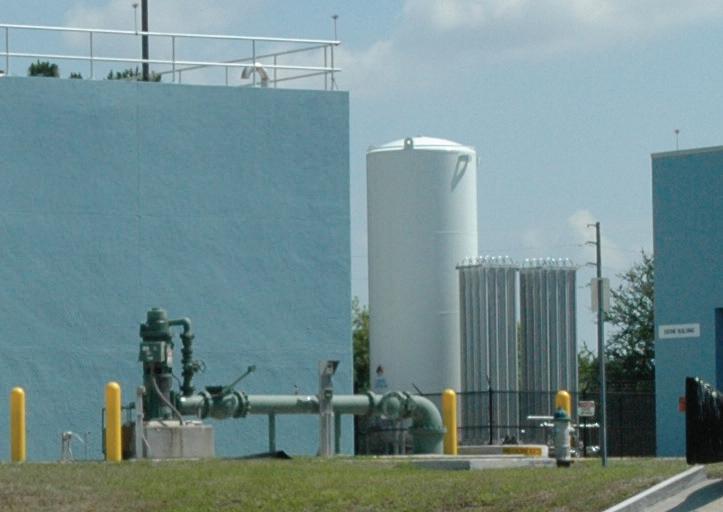

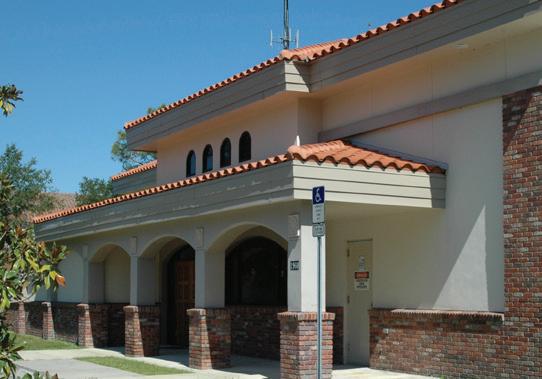
A national survey conducted by the American Water Works Research Foundation in 1993 found that nearly two-thirds of water consumers surveyed said they received “very little” or “no” information on the quality of their water from their utility. In contrast to this, the City of Winter Park annually provides a water
Drinking water standards are regulations that the Environmental Protection Agency (EPA) sets to control the level of contaminants in our nation’s drinking water. These standards are part of the Safe Drinking Water Act’s “multiple barrier” approach to drinking water protection, which includes assessing and protecting drinking water sources; protecting wells and collection systems; making sure water is treated by qualified operators; ensuring the integrity of distribution systems; and making information
The Safe Drinking Water Act, which was enacted by Congress in 1974, authorizes the federal government to establish water quality standards to ensure safe drinking water to the consumer. We are required to test for regulated and unregulated compounds in your drinking water to determine if your water meets Safe Drinking Water Act standards. The compounds listed show the maximum containment levels allowed and the test results in your drinking water.
quality report to all of their customers. Informed and involved citizens can be strong allies of water systems, large or small, as they take action on pressing problems. Also, an increase in public awareness can give sensitive groups the information that they need to take appropriate action.
available to the public on the quality of their drinking water. With the involvement of the EPA, states, drinking water utilities, communities and citizens, these multiple barriers ensure that tap water in the United States and territories is safe to drink. In Florida, EPA delegates responsibility for implementing drinking water standards to the Florida Department of Environmental Protection (FDEP).
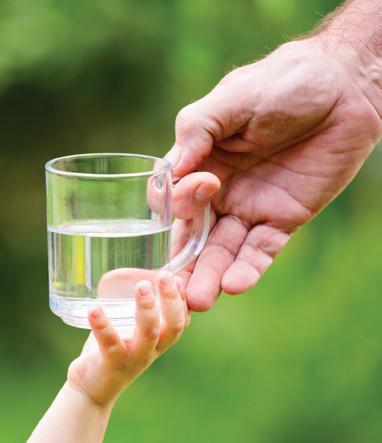
In 1996, an amendment was made to the Safe Drinking Water Act requiring all drinking water utilities to provide an annual report to consumers concerning the quality of
their water. This report is for that purpose. We have learned through our monitoring and testing that some constituents have been detected. Since these concentrations are well below the maximum contaminate levels set by the Department of Environmental Protection Agency, no action is required except for continued routine monitoring. If you have any questions concerning the drinking water test results or health effects, you may call our laboratory manager at 407-599-3527 or the United States EPA Safe Drinking Water Hotline at 800-426-4791.
The City of Winter Park is pleased to present this year’s Water Quality Report. This report is designed to inform you about the quality of water and services we deliver to you every day. Our constant goal is to provide you with a safe, dependable supply of drinking water. We want you to understand the efforts we continually make to improve the water treatment process and protect our water resources. We are committed to ensuring the quality of your water. For information concerning drinking water management meetings or opportunities for public participation in decisions that may affect the water quality, please call 407-599-3527.
The City of Winter Park owns and operates three interconnected state-of-the-art drinking water treatment facilities and one repumping facility which serve approximately 23,000 connections within a 23-square-mile service area. These awardwinning water facilities treat an average of 10.5 million gallons per day for both domestic and public use.
Water is pumped from the lower Floridan aquifer through six wells varying in depths of up to 1330 feet deep. The Floridan aquifer is one of the largest reservoirs of fresh water in the country, and provides drinking water of high quality which is used by many utilities in central Florida as a water source. The raw water is treated with ozone to completely eliminate the naturaloccurring hydrogen sulfide, then stored in large ground storage tanks where it is fluoridated and chlorinated. Fluoride is used for maintaining strong teeth and bones, whereas chlorine kills harmful bacteria.
The Winter Park water system is operated by state-certified water treatment plant operators and monitored 24 hours a day, 7 days a week. The water is tested daily to ensure that state and federal water quality regulations are being met. Last year, certified laboratories performed approximately 6,000 analyses on samples taken throughout our water system.
To ensure that tap water is safe to drink, the EPA prescribes regulations which limit the amount of certain contaminants in water provided by public water systems. The Food and Drug Administration (FDA) regulations establish limits for contaminants in bottled water which must provide the same protection for public health.
The sources of drinking water throughout the nation (both tap and bottled water) include rivers, lakes, streams, ponds, reservoirs, springs and wells. As water travels over the surface of land or through the ground, it dissolves the naturally-occurring minerals and, in some cases, radioactive material, and can pick up substances resulting from the presence of animals or from human activity. Winter Park obtains its water exclusively from the Floridan aquifer, therefore Winter Park drinking water is entirely ground water.
In 2024, the FDEP performed a Source Water Assessment on the city’s system. The assessment was conducted to provide information about any potential sources of contamination in the vicinity of our wells. There are 20 potential sources of contamination identified for this system with low to moderate susceptibility levels.
The assessment results are available on the FDEP Source Water Assessment and Protection Program website.
» access prodapps.dep.state.fl.us/swapp
» click Search by County [located on the left]
» select Orange
» select WINTER PARK, CITY OF (5WPS) (2024).
These results can also be accessed a couple of different ways from the city’s website:
» go to cityofwinterpark.org/h2oReport or
» access cityofwinterpark.org under Find what you need, click on Water Quality Report
To have a printed copy mailed to your home, please contact the Water & Wastewater Utilities Department at 407-599-3597
A. Microbial contaminants such as viruses or bacteria, which may come from sewage treatment plants, septic systems, agricultural livestock operations or wildlife.
B. Inorganic contaminants such as salts and metals, which can be naturally-occurring or result from stormwater runoff, industrial or domestic wastewater discharges, oil and gas production, mining, or farming.
C. Pesticides and herbicides which may come from a variety of sources such as agriculture, urban stormwater runoff, and residential uses.
D. Organic chemical contaminants including synthetic and volatile organic chemicals which are by-products of industrial processes and petroleum production and can also come from gas stations, urban stormwater runoff, and septic systems.
E. Radioactive contaminants which can be naturally-occurring or be the result of oil and gas production and mining activities.

Drinking water, including bottled water, may be reasonably expected to contain small amounts of some contaminants. The presence of contaminants does not necessarily indicate that the water poses a health risk. More information about contaminants and potential health effects can be obtained by calling the EPA’s Safe Drinking Water Hotline at 1-800-426-4791 .
Some people may be more vulnerable to contaminants in drinking water than the general population. Immuno-
compromised people, such as patients with cancer undergoing chemotherapy, organ transplants, people with HIV/AIDS or other immune system disorders, some elderly, and infants can be particularly at risk from infections. These people should seek advice from their healthcare providers about drinking water. EPA/CDC guidelines on appropriate means to lessen the risk of infection by Cryptosporidium and other microbiological contaminants are also available from the EPA Safe Drinking Water Hotline at 1-800-426-4791 .
Asbestos Samples are examined for asbestos fibers on a routine basis. The data presented is from the most recent testing done in accordance with the regulations.
Copper
Although an essential nutrient, some people who drink water containing copper in excess of the action level over a relatively short amount of time could experience gastrointestinal distress. Some people who drink water containing copper in excess of the action level over many years could suffer liver or kidney damage. People with Wilson’s Disease should consult their personal doctor. The City of Winter Park has initiated corrosion control measures which produce a drinking water that should be less corrosive to copper pipes.
Fecal Coliform/E. coli These are bacteria whose presence indicates that the water may be contaminated with human or animal wastes. Microbes in these wastes can cause short-term effects, such as diarrhea, cramps, nausea, headaches or other symptoms. They may pose a special health risk for infants, young children and people with severely compromised immune systems.
Fluoride
Some people who drink water containing fluoride in excess of the maximum contaminant level over many years could get bone disease including pain and tenderness of the bones. Children may get mottled teeth.
Lead Lead can cause serious health effects in people of all ages, especially pregnant people, infants (both formula-fed and breastfed), and young children. Lead in drinking water is primarily from materials and parts used in service lines and in home plumbing. The City of Winter Park is responsible for providing high quality drinking water and removing lead pipes but cannot control the variety of materials used in the plumbing in your home.
Because lead levels may vary over time, lead exposure is possible even when your tap sampling results do not detect lead at one point in time. You can help protect yourself and your family by identifying and removing lead materials within your home plumbing and taking steps to reduce your family’s risk. Using a filter, certified by an American National Standards Institute
accredited certifier to reduce lead, is effective in reducing lead exposures. Follow the instructions provided with the filter to ensure the filter is used properly. Use only cold water for drinking, cooking, and making baby formula. Boiling water does not remove lead from water. Before using tap water for drinking, cooking, or making baby formula, flush your pipes for several minutes. You can do this by running your tap, taking a shower, doing laundry or a load of dishes. If you have a lead service line or galvanized requiring replacement service line, you may need to flush your pipes for a longer period.
If you are concerned about lead in your water and wish to have it tested, please contact the City of Winter Park at 407-599-3527. Information on lead in drinking water, testing methods, and steps you can take to minimize exposure is available at epa.gov/safewater/lead.
Radionuclides Expressed in pCi/L (picocuries per liter - a measure of radioactivity). Drinking water is screened for Gross Alpha particle activity radiation. Certain minerals are radioactive and may emit a form of radiation known as alpha radiation. Some people who drink water containing alpha emitters in excess of the maximum contaminant level over many years may have an increased risk of getting cancer.
Total Coliform The Federal Total Coliform Rule requires water systems to meet a strict limit for coliform bacteria. Coliform bacteria are usually harmless, but their presence in water can be an indication of disease-causing bacteria. When coliform bacteria are found, special follow-up tests are done to determine if harmful bacteria are present in the water supply. If this strict limit is exceeded, the water supplier must notify the public by newspaper, television or radio. To comply with this strict regulation, we have increased the average amount of chlorine in the distribution system. No cross contamination incidences have occurred during 2024.
Total Trihalomethanes This occurs in ground water as a byproduct of chlorine disinfection.
This list represents all the elements or compounds detected during 2024, unless the sampling date indicates otherwise. The data presented in this report is from the most recent testing done in accordance with regulations. Drinking water analyses showed that all parameters were below the detectable limits of the analytical instruments except for the list on the following page.
Contaminant & unit of measurement
Bromate (ppb) Jan-Dec 2024 No
2024 No
(Highest Annual)
Trihalomethanes (TTHM) (ppb)
(Highest LRAA)
Additive used to control microbes
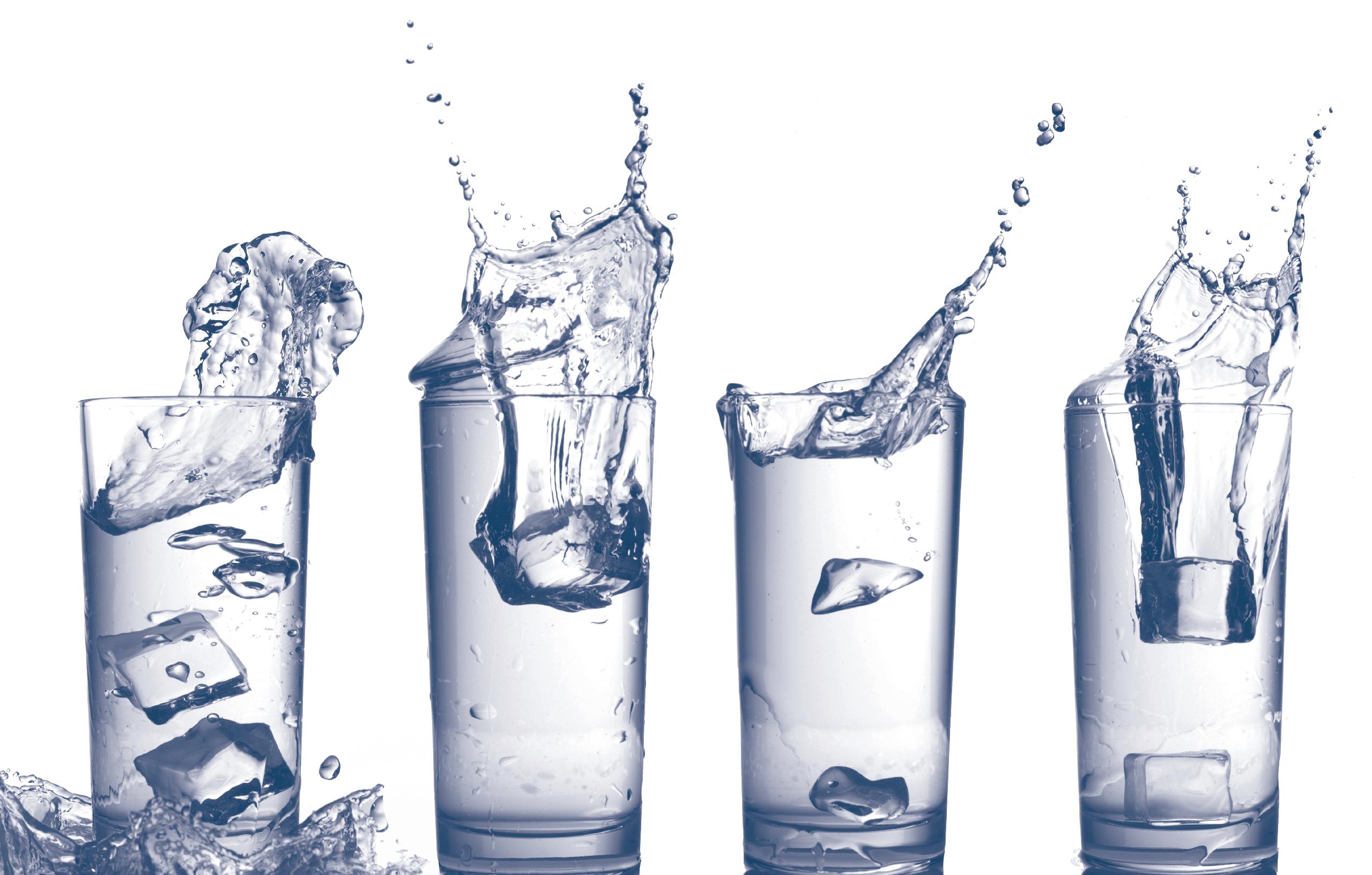
By-product of drinking water disinfection
NOTE The result in the Level Detected column for TTHMs and HAAs is the highest of the four quarterly locational running annual averages of results from all sampling sites.
NOTE During March and September 2024, samples taken at 6112 Forest City Road had a TTHM result of 80.4 ppb and 82.0 ppb respectively. However, the system did not incur an MCL violation, because all annual average results at all sites were at or below the MCL. Some people who drink water containing trihalomethanes in excess of the MCL over many years may experience problems with their liver, kidneys or central nervous systems, and may have an increased risk of getting cancer.

Contaminant & unit of measurement
Contaminant & unit of measurement
Perfluorobutanesulfonic Acid (PFBS)
Perfluorohexanoic Acid (PFHxA)
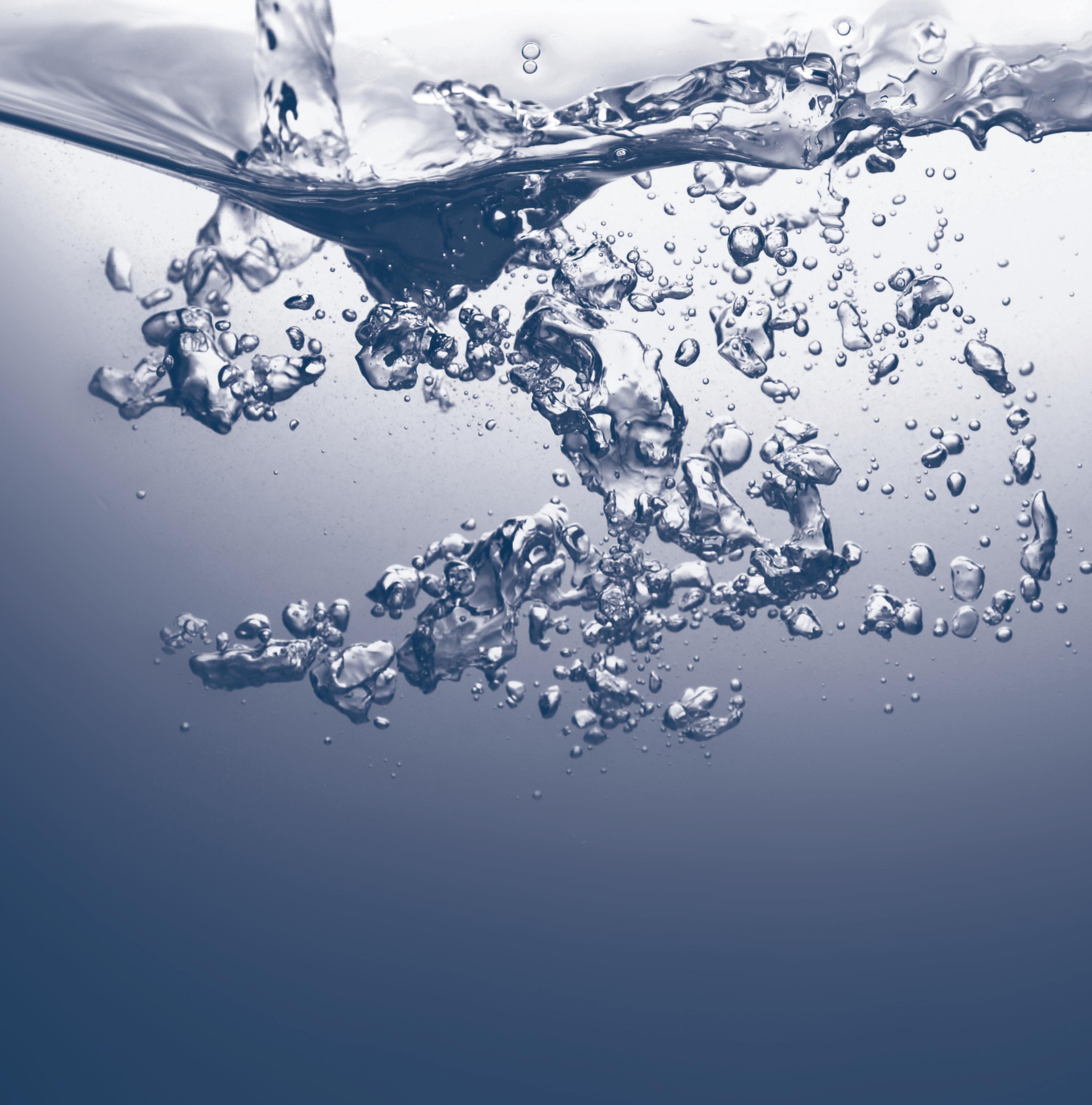
Dates of sampling (month/year)
Feb 2024, Aug 2024 No 0.0010
Feb 2024, Aug 2024 No
Perfluoripentanoic Acid (PFPeA) Feb 2024, Aug 2024 No
Perfluoroheptanoic Acid (PFHpA)
Perfluorohexanesulfonic acid (PFHxS)
Perfluorooctanesulfonic Acid(PFOS)
Feb 2024, Aug 2024 No
Feb 2024, Aug 2024 No
Feb 2024, Aug 2024 No
Perfluorooctanoic Acid (PFOA) Feb 2024, Aug 2024 No
Perfluorobutanoic Acid (PFBA)
Feb 2024, Aug 2024 No
ND – 0.0010 PFAS are a group of synthetic chemicals used in a wide range of consumer products and industrial applications including: non-stick cookware, water-repellent clothing, stain resistant fabrics and carpets, cosmetics, firefighting foams, electroplating, and products that resist grease, water, and oil. PFAS are found in the blood of people and animals and in water, air, fish, and soil at locations across the United States and the world.
– 0.0016
– 0.0019
– 0.0009
– 0.0017
– 0.0023
– 0.0028
– 0.0023
NOTE The City of Winter Park monitored for Unregulated Contaminants (UCs) in 2024 as part of a study to help the U.S. Environmental Protection Agency (EPA) determine the occurrence in drinking water of UCs and whether or not these contaminants need to be regulated. At present, no health standards (for example, maximum contaminant levels) or likely sources have been established for UCs. However, we are required to publish the detected analytical results of our UC monitoring in our annual water quality report.
For the complete list of results, including the non-detected contaminants, please contact the Water Treatment Laboratory Manager at 407-599-3527. If you would like more information on the EPA’s Unregulated Contaminants Monitoring Rule (UCMR), please call the Safe Drinking Water Hotline at 1-800-426-4791.
of household plumbing systems; erosion of natural deposits; leaching from wood preservatives
of household plumbing systems; erosion of natural deposits
Additional information Winter Park city water is virtually lead- and copper-free. However, these elements could possibly leach into the water from copper pipe corrosion from a building’s plumbing. Buildings at risk for lead or copper in the water are those that have lead services and pipes or lead solder in copper pipes. To prevent this, the city has implemented a system-wide corrosion control plan. This report contains the 90th percentile and range of our most recent sampling. The individual results for each location sampled are available for review by contacting the City of Winter Park at 407-599-3527. In compliance with the EPA’s Lead and Copper Rule Revisions, Winter Park has also developed and published an inventory of its water service lines, which can be accessed at cityofwinterpark.org/leadcopper.

The level reported represents the highest level reported in all of our sample points throughout the city.
MCL (Maximum Contaminant Level) The highest level of a contaminant that is allowed in drinking water.
MCLs are set as close to the Maximum Contaminant Level Goals as feasible using the best available treatment technology.
Maximum Contaminant Levels are set at very stringent levels. To understand the possible health effects described for many regulated constituents, a person would have to drink 2 liters of water every day at the MCL for a lifetime to have a one-in-a-million chance of having the described health effect. An exception to this statement is the risk assessment probability of cancer. In reality, the probability of contacting cancer will vary, depending on the assessed contaminant.
MCLG (Maximum Contaminant Level Goal) The level of a contaminant in drinking water below which there is no known or expected risk to health. MCLGs allow for a margin of safety.
LRAA (Locational Running Annual Average) The average of last four quarters of data for a specific location for the year being reported.

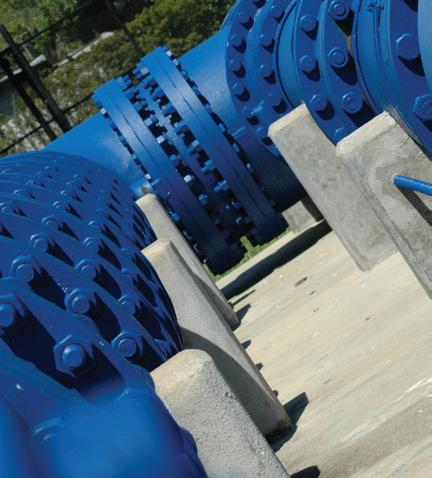
ND (Non-Detected) Indicates that the substance was not found by laboratory analysis.
NA Not Applicable.
ppm parts per million, or milligrams per liter (mg/L) - one part by weight of analyte to 1 million parts by weight of the water sample. ppb parts per billion, or micrograms per liter (µg/L) - one part by weight of analyte to 1 billion parts by weight of the water sample.
pCi/L picocuries per liter-measure of the radioactivity in water
CFU Colony Forming Units
AL (Action Level) The concentration of a contaminant that, if exceeded, triggers treatment or other requirements that a water system must follow.
MFL (Million Fibers per Liter) A measure of the presence of asbestos fibers that are longer than 10 micrometers.


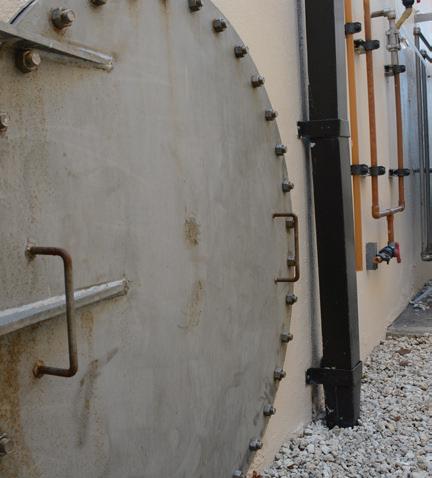

Our goal is to provide all of our customers with a safe, reliable, supply of the highest quality water. We are proud to report that all of our customers in the 22-square-mile service area are receiving award-winning quality from a utility that has been recognized not only in the state of Florida, but nationwide. Over the past 10 years, the City of Winter Park’s water treatment facilities have been commended for best taste, optimum fluoride levels, operational excellence, and overall sustainability.
Each year, the Florida Department of Environmental Protection (FDEP) presents awards to drinking water facilities around the state that demonstrate excellence in operation, maintenance, innovative treatment, waste reduction, pollution prevention, recycling, and other achievements. FDEP recognizes facilities that demonstrate a special commitment to excellence in management through dedicated professionalism and that have an impeccable history of record-keeping compliance. In 2020, the Aloma Water Treatment Plant was selected for the Plant Operations Excellence Award. In 2016, the Swoope Water Treatment Plant was also selected for the Plant Operations Excellence Award. This award is for a large community water system serving more than 50,000 persons. In 2012, the FSAWWA awarded the Swoope Water Treatment Plant the Outstanding Class B Water Treatment Plant Award in the state. Class B treatment plants include those that treat 10 million gallons or more of water per day.
In 2015 {as well as 2013, 2011 and 2007}, the FSAWWA awarded the Magnolia Water Treatment Plant the Outstanding Class C Water Treatment Plant Award in the state. Class C treatment plants include those that treat up to 10 million gallons of water per day.
The judging panel for the Water Treatment Plant Awards considers the following criteria when reviewing applications:
1. Compliance with standards from the Florida Department of Environmental Protection, Department of Health, and Environmental Protection Agency.
2. Adherence to operational record rules.
3. Plant’s maintenance program as well as pride in its grounds & process equipment.
4. Professionalism of staff.
5. Employee safety program & hours lost due to accidents.
6. Emergency preparedness program & commitment to provide safe water to the public at all times.
7. Public relations efforts including school tours & lectures.
The American Water Works Association is the world’s largest nonprofit scientific and educational society dedicated to the improvement of water supply and quality. The society has more than 57,000 members representing the full spectrum of the drinking water community and includes more than 4,700 utilities that supply water to roughly 180 million people in North America.
Also in 2007, the Promising Practice Award from the Council for Sustainable Florida was presented for the city’s combined efforts with the affordable housing project – Railroad Avenue residences – and the Swoope Avenue Water Treatment Facility project. This project continuously impacts the community by providing increased water quality and improved living conditions for Winter Park residents. This same project was awarded the City Spirit Award by the Florida League of Cities in 2005 and a national award for architectural excellence from the Design Build Institute of America.
The Council for Sustainable Florida is a program of the Collins Center for Public Policy that recognizes businesses, organizations and individuals for their dynamic work in helping to create a sustainable Florida and demonstrate outstanding achievements and excellence in general sustainability practices.
The City of Winter Park is a leader in providing quality water to their customers and conserving our water resources. The city offers free irrigation consultations to help customers identify areas of high-water use, and then recommend where they can adjust. This saves money for customers and conserves water for the environment.
On behalf of our dedicated staff, we thank you for your support and confidence.